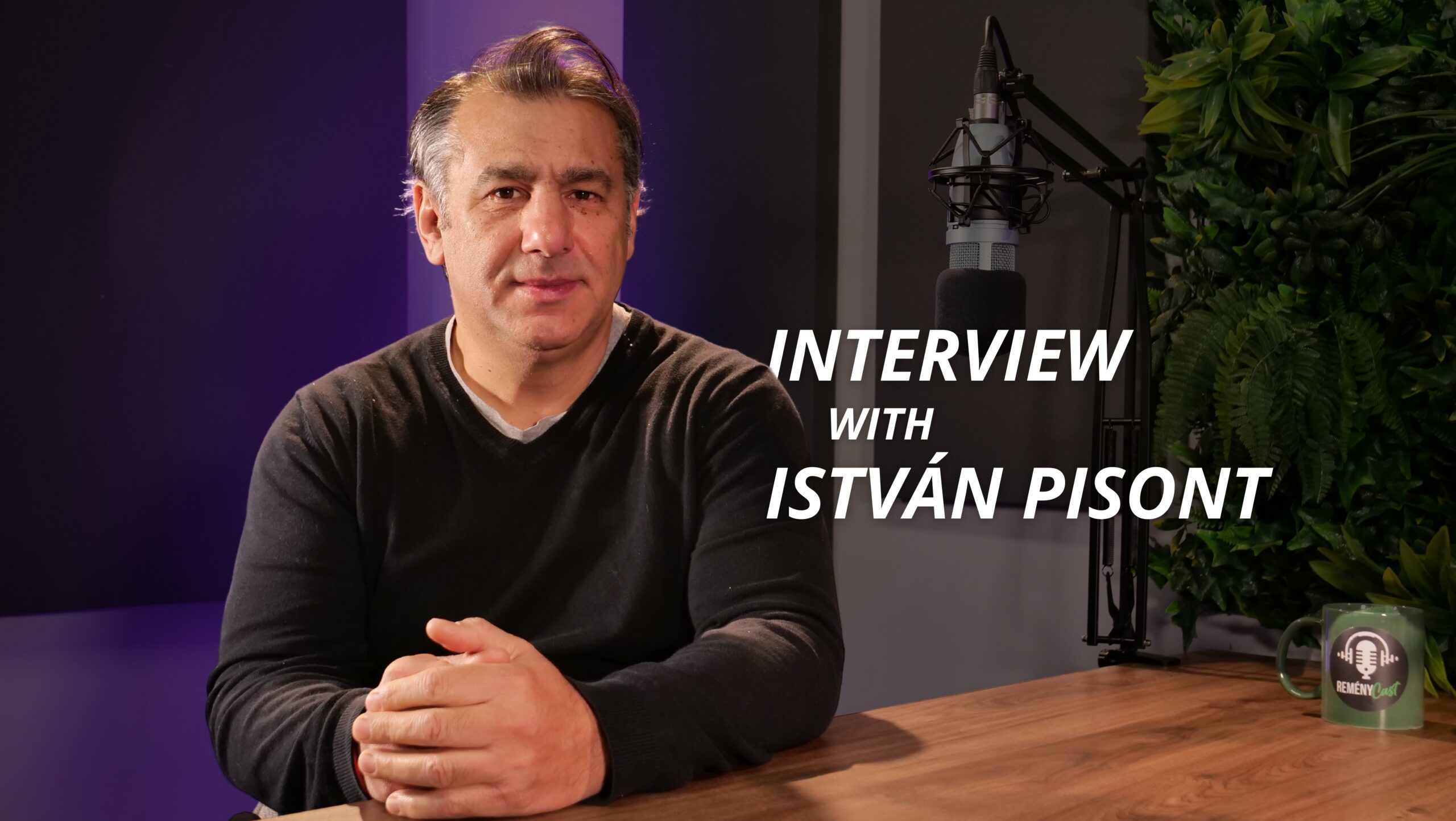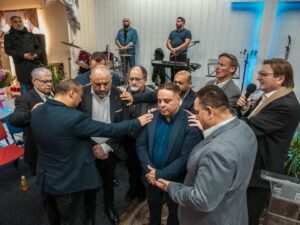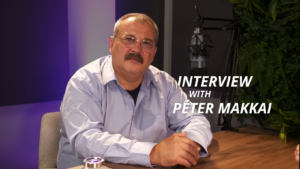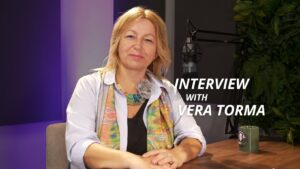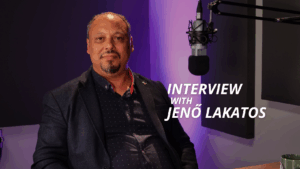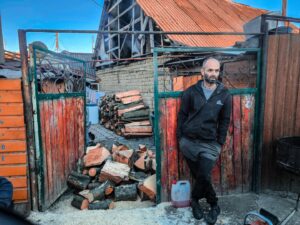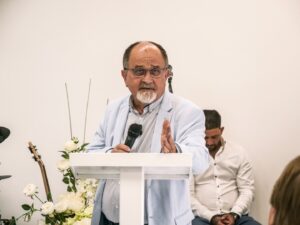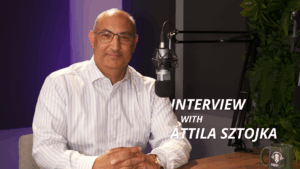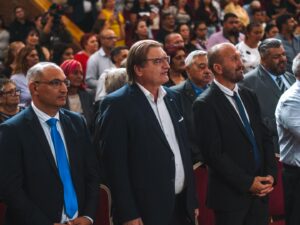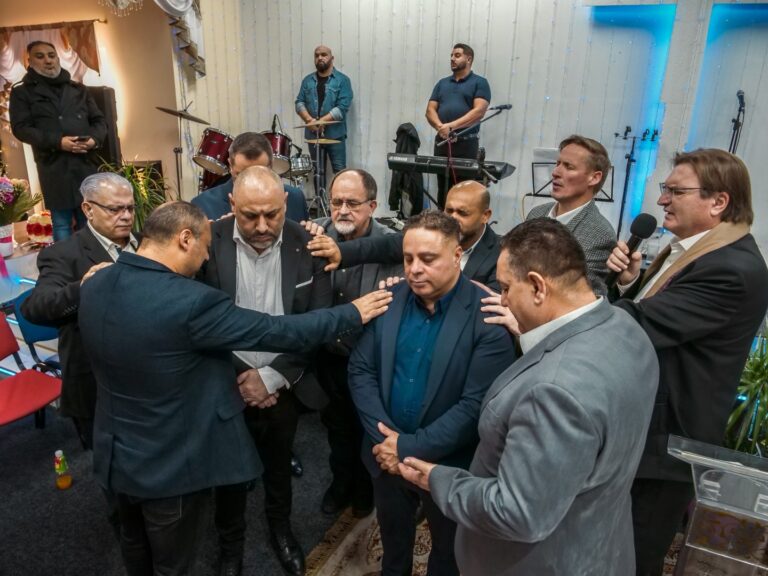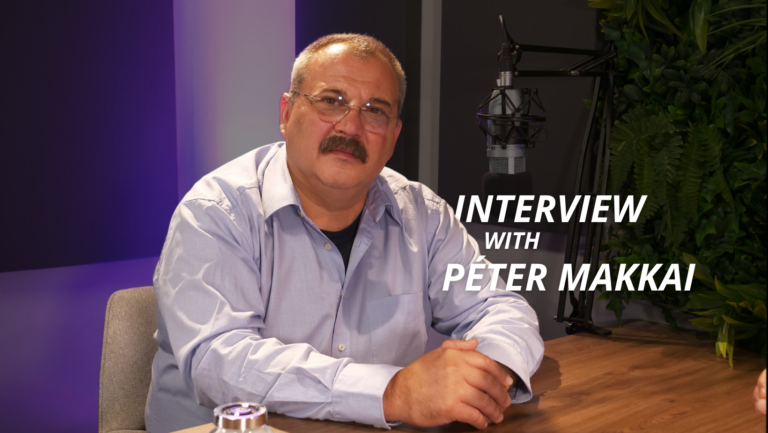István Pisont is a well-known figure among Hungarian football fans, but his story goes far beyond the realm of sports. He began life as a Roma boy from modest beginnings and rose to the top tiers of both domestic and international football. In this episode, we discuss not only his athletic career but also the role of faith in shaping his life, the emotional and physical challenges he overcame, and what social responsibility means to him.
We’re very happy to have you here with us in the studio! You’ve been involved with the mission for a long time, you travel frequently, and you often share your life story. Let’s start from the beginning: You were born in a small house in Gádoros. What does that place mean to you?
Thank you very much for having me! Yes, I’m from Békés County and grew up in Gádoros, although I was born in Orosháza. Our childhood home still stands, even though it’s in poor condition. Still, it means a lot to me — everything began there. It’s not just a building but a place that shaped my life. The experiences and emotions I had there still live within me.
Tell us about the house you grew up in. What has stayed with you most deeply?
I grew up on a large plot in Gádoros, where two houses stood. My father had ten siblings, and his entire family lived there. When he eloped with my mother, she moved in as well. They didn’t have a formal wedding — they simply chose each other out of love. My aunt still says, “Pityu, your mother was the only one in the family who married for love.” My mother gave birth to three children — my brother, sister, and me — and we all grew up in that home.
The conditions were very modest, even harsh. We had no running water and fetched it from a well. There was no bathroom; we bathed in a basin. We heated with a stove. My father was a horse trader, and we had many animals — pigs, cows, chickens. But what really mattered was the strong sense of community. Everyone played a role in raising the children, and that sense of togetherness still lives in me today.
Did your love of sports begin there as well?
Absolutely. Everyone on Kölcsey Street was a Fradi fan, and life on the playground was lively. We held street tournaments, and age didn’t matter. At 14, I was already playing with adults. Today, that would be unthinkable, as age groups are separated, but back then we grew up together — we gained experience by playing alongside older players.
Was it clear early on that you had talent?
Yes, but my father’s influence was essential. He was a local legend in Gádoros — well-known and respected. Although many top teams tried to recruit him, he never left the village. He valued community above all, and that unity left a lasting impression on me.
Was it a Roma community? Was your family Roma?
Yes, both my mother and father were Roma. My mother raised us alone — five children.
Is your wife also Roma?
No, she’s Hungarian. It wasn’t a conscious decision; that’s just how life happened. I met her at a club, and I’m incredibly grateful to God for her. Even though she’s not Roma, she grew up among us and embraced our way of life.
How old were you when you met your wife?
I was 18, already playing for Honvéd. I met her at a disco in Gádoros during a visit home. She wasn’t from the area — I could tell right away. She was from Eperjes. A few days later, we met again and started dating. That’s how our relationship began.
Did she know you were Roma at the time?
No, she had no idea. She later said she just found me friendly — I approached her kindly, and that’s what caught her attention.
Did it ever bother you that your life was an open book to others?
Not at all. I was happy to be in that world. I never abused the attention, but it felt good — mostly because of football. People were curious about life at a first-division club, and I had many local role models who had made it far.
Who were your role models?
First and foremost, my brother, András Pisont. He was the first to rise above our circumstances.
So he paved the way for you?
Exactly. After our parents divorced — which is rare in the Roma community — our father still stayed in touch, but our mother had to raise five kids on her own. My brother quit school to help her because she fell ill from working in a hemp factory. He took on the role of a father. Without him, we could’ve ended up in an orphanage.
Was he also your football role model?
Absolutely. He was humble, hardworking, and talented. He gave everything, and that inspired me tremendously.
What else inspired you during childhood?
The World Cups of 1978 and 1982, and the European Championships — those were pivotal for me. Watching those games sparked my passion for football. My brother’s early achievements and our family’s struggles all fueled my motivation.
How did you move to Budapest at 18?
As a teenager, I participated in talent searches led by Feri Szűcs and Gyuri Szombathy. Later, a PE teacher from Szeged, Imre Kozma, noticed me. I tried various sports, including track, and eventually played for the county team.
Did you face discrimination because of your Roma background?
Yes, I felt it. The hatred was real, and it was tough. But my love for football kept me going. I never let it stop me.
I read people shouted at you during matches, calling you “the biggest gypsy.” What was that like?
Imagine twenty thousand people yelling “gypsy” at you. When I joined Honvéd, I was shocked — in Gádoros, I was respected and loved. But I had to make a choice: give up or build a future? I chose to keep going, for my family and for myself.
How did you endure it?
First, I needed divine guidance. My mother was a religious woman, and our family always lived in faith. We went to church every Sunday — it wasn’t optional. Our priest, Béla Varga, was like a father figure. He respected and supported the Roma, and his teachings gave me strength — especially when I was hurt on the field.
So faith gave you strength even in the face of abuse?
– Yes, absolutely. My faith and closeness to God gave me peace to ignore insults and focus on the game. I didn’t let the insults get to me — I just played my game. God’s guidance helped me through my toughest moments.
Let’s go through some milestones. After moving to Budapest, what teams did you play for?
I played in Gádoros until I was 18, joining the senior team at 14. Playing against 30-year-olds was intimidating, but I learned fast — how to defend, read the game, and stay safe. Eventually, I moved to Szarvas and played in NB II. After just three games, I was called to Budapest.
Did you play abroad?
Yes. After joining Békéscsaba, I was already on the radar. Coach Gyuri Szombathy recommended me. Honvéd’s coach Bertalan Bicskei sent Lajos Szurgent to scout a different player in Gyula, but they had heard of me. They stopped in Szarvas, watched me play, and were impressed. Two weeks later, I was training with Honvéd.
Did you serve in the military?
Yes, for six months. I played in the junior league and learned a lot. I also watched my brother’s matches. Joining Honvéd changed my life. I liked the team — players like Antal Nagy and Lajos Détári made a big impression. I stayed there from 1988 to 1995.
What happened during your time at Honvéd?
A lot. In 1995, I went abroad — first to Belgium, then Israel. Honvéd was facing challenges, including a match-fixing scandal. Despite that, we won both the league and the cup.
What advice would you give young players?
Practice a lot, stay humble, work hard, and have faith. Dream big and pursue your goals with everything you’ve got. True success comes from doing what you love wholeheartedly.
How did you train?
I trained constantly — not just during official sessions. I played even during school breaks and spent 6–8 hours a day on football.
What’s the secret to success?
Persistence, effort, and self-belief. As St. James said, “Faith without works is dead.” You need love, dedication, and consistent effort.
That takes physical endurance, too.
Absolutely. Diet, rest, and training all have to work together. Eating was about survival — just having food, even lard bread, was a blessing.
What was the hardest part to overcome?
Not having enough — not enough clothes or food. That was the toughest. But school meal programs helped, and Sundays, when we had warm meals together, gave us strength.
Did success go to your head once money came in?
No. I’ve always been careful with money. My first salary was 12,500 forints, and I saved it. I saved even during military service. I never spent unnecessarily. I bought a car, but not an expensive one — just something I could maintain.
How did you support your family?
I helped my mother pay off a house loan in Gádoros. Later, in Israel, I was finally able to send money regularly to support them.
How do you help others today?
In 2015, I founded a foundation to support talented Roma youth — not just in sports but in music and the arts as well.
How does the foundation operate?
We provide tutoring, sports gear, and cover travel costs — it’s about holistic development, not just athletics.
What is your current job?
I’m an assistant coach in Zalaegerszeg for an NB I team. I still scout talent, although not as intensively as before.
What are your future goals?
I want to continue talent development and create a structure others can carry forward. I’m 54, and I believe I have 15–20 productive years ahead. I want to use that time to shape the future.
What’s your greatest hope?
To pass on the knowledge and experience I’ve gained. To leave behind a legacy that goes beyond my career — to help children realize their potential. I want to prove that someone from a small home in Gádoros can achieve success, build a loving family, and earn professional respect.
Why is helping others so important to you?
Because I believe many children have outstanding talent but lack support. If I can give them a vision for the future, that would be the perfect conclusion to my career. I believe many “István Pisonts” could be born again, and I want to help them achieve their dreams.
What does your career mean to you?
I’m grateful to everyone who helped me along the way. I played at the elite level, was on the national team, won several championships and cups. Even though I never made it to the Euros or World Cup, I’m proud of everything I achieved. My goal is to ensure the next generations have a future — that they too can reach greatness.
Thank you for the conversation — I hope we’ve offered hope and opportunity to our viewers.



